Hyperlocal and Heritage-Driven: How These Bali Restaurants Redefine Sustainability
Begawan Biji, photo by restaurant.
In the dynamic culinary scene of Southeast Asia and the Asia-Pacific region, a growing number of trailblazing establishments are redefining sustainability, community engagement, and innovation. Locavore NXT, Begawan Biji, and John Hardy The Long Table in Bali serve as exemplary case studies, demonstrating how fine dining and luxury experiences can harmoniously align with environmental stewardship and cultural preservation. These businesses provide valuable insights for restaurants striving to place sustainability at the heart of their business.
This is Part 2 of our two-part series. In case you missed it, please be sure to check out Part 1 highlighting how responsible hospitality could create meaningful ripple effects — changing not just businesses, but communities and ecosystems for the better.
Locavore NXT: Hyperlocalized Fine Dining, Redefined
Located just outside Ubud, Bali, Locavore NXT is not just a restaurant; it’s a masterclass in how the hospitality industry can integrate sustainability, community, and innovation. Founded in December 2023 by chef-owners and long-time business partners Eelke Plasmeijer and Ray Adriansyah, Locavore NXT reimagines fine dining as an experiential journey rooted in hyperlocal sourcing and ecological stewardship.
From left: Eelke Plasmeijer and Ray Adriansyah. Photos by Locavore NXT.
A Culinary Playground Rooted in Innovation and Technology
The 6,000-square-meter property houses a fermentation lab, an edible rooftop jungle, mushroom-growing chambers, and a biodiversity library. These features aren’t just for show; they serve as an interactive platform for diners to understand the journey from farm to table.
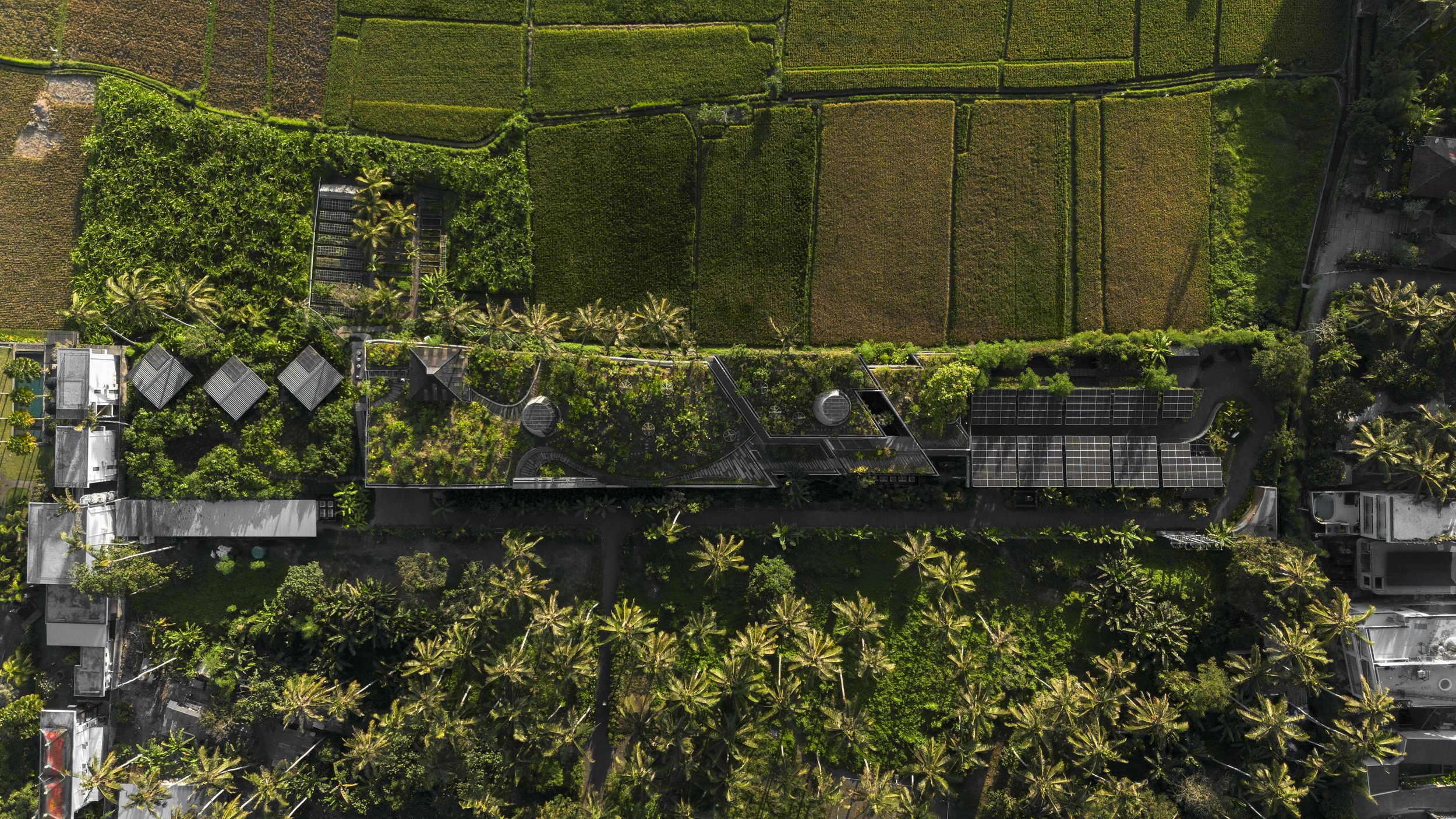
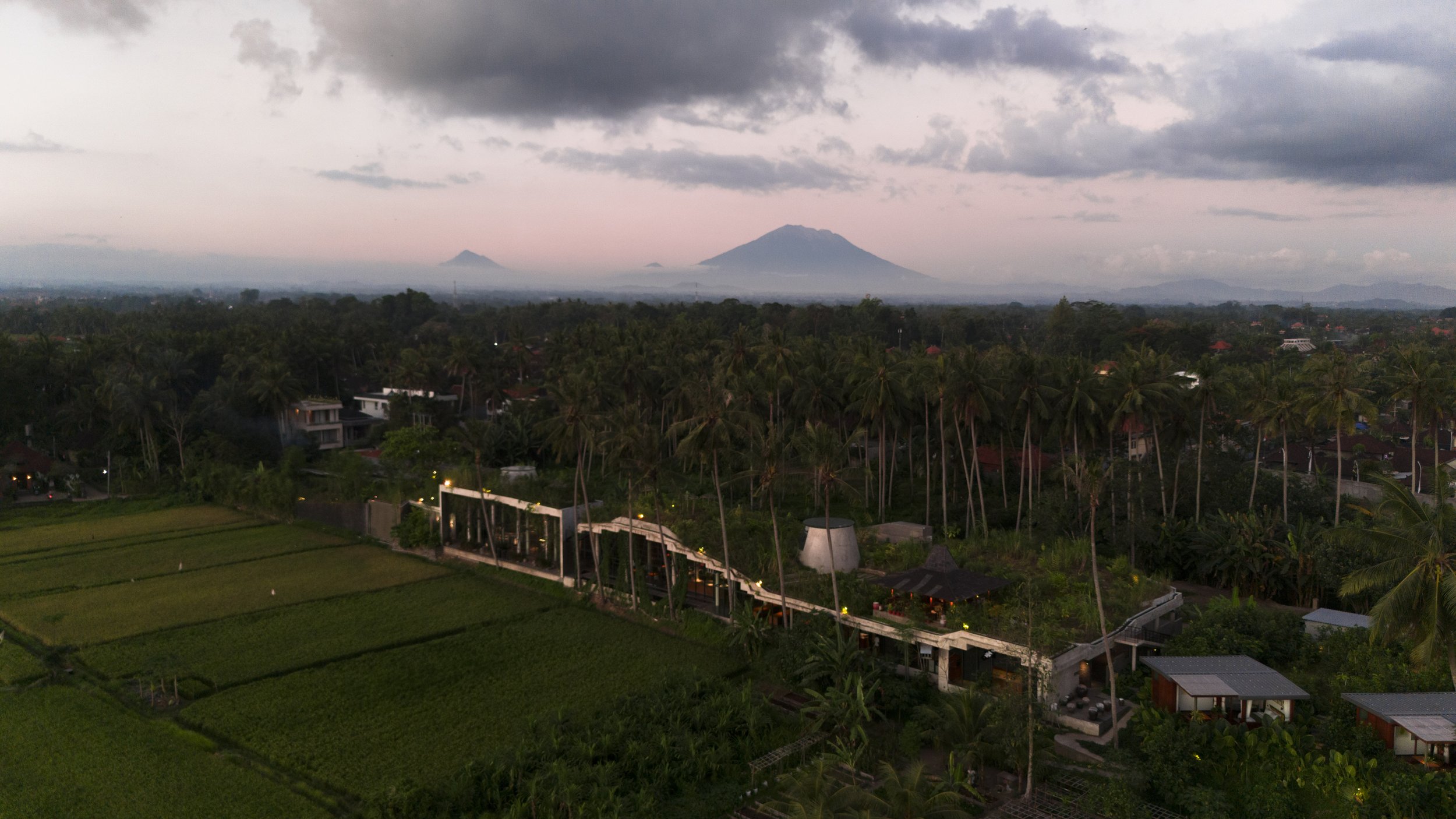

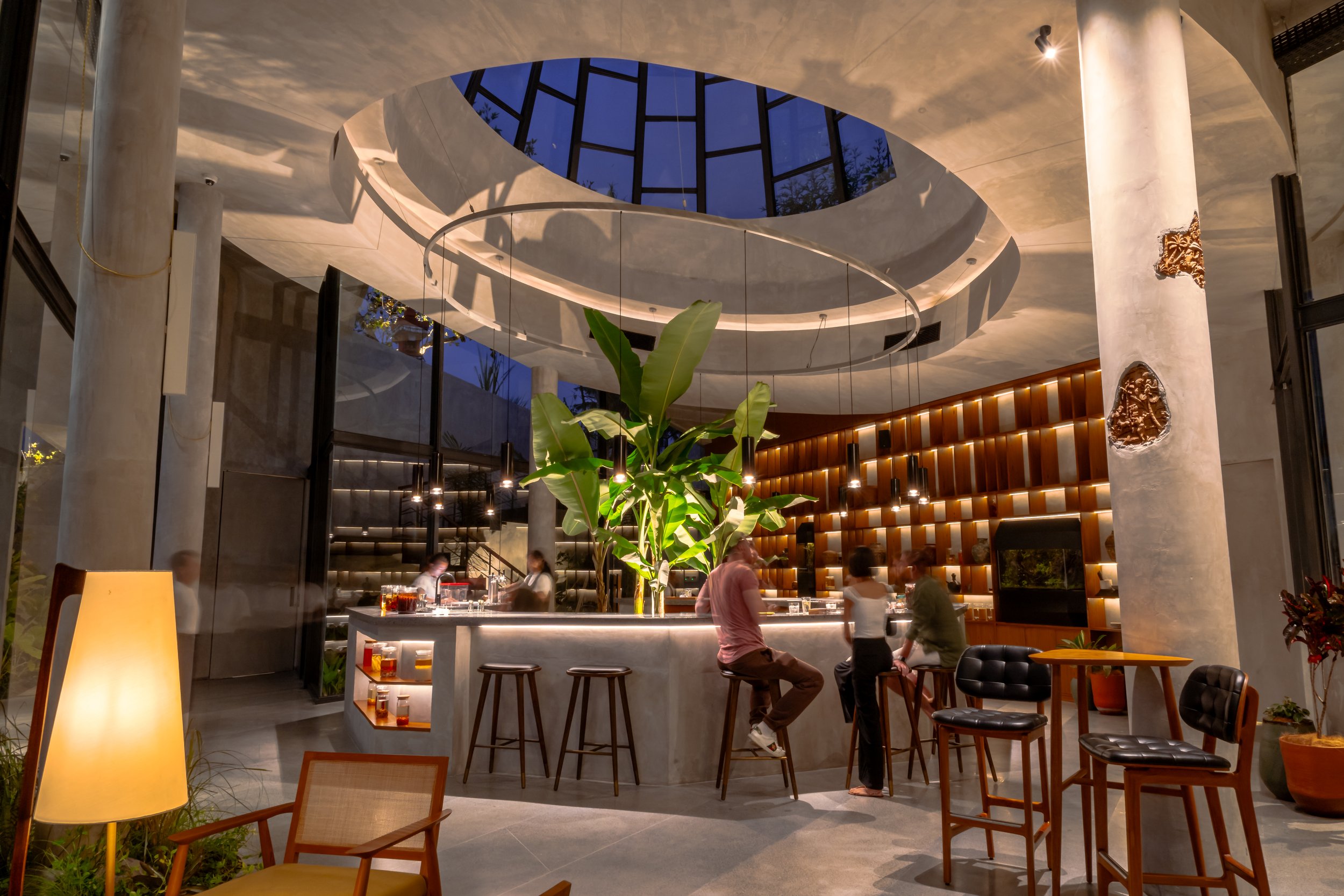

Photos by Locavore NXT.
In an interview with Tatler Asia, Eelke said, “We aim to bridge the gap between diners and the origins of their food...Most people wouldn’t recognize raw ingredients in their natural form.”
A prime example is the restaurant’s climate-controlled mushroom chamber in the basement, where 13 varieties — including Indonesian native species and lesser-known varieties like lion’s mane — are cultivated and featured across the menu. These ingredients shine in mushroom tea or tempeh made from kenari nuts, paired with cashew milk sauce.
Photos by Locavore NXT.
Also housed in the basement is the Biodiversity Interactive Open-Source (B.I.O.) Library, a cutting-edge platform that catalogs over 250 local ingredients with 3D scans and details on seasonality and traditional uses. It serves as both a guest education tool and a global resource for chefs and researchers.
Sustainability Embedded Back-to-Back
Locavore NXT operates with environmental consciousness at its core.
Solar panels, a worm sewage treatment plant, and a Black Fly larvae system for composting waste underscore its commitment to reducing its ecological footprint. “We aim to be the best restaurant we can be, with the lightest impact on the planet,” said Elke.
There are also on-site cabins for guests who wish to stay overnight—perfect for those visiting Ubud from different parts of Bali and wanting to spend their evenings leisurely.
Photos by Locavore NXT.
Begawan Biji: Where Culinary Excellence Meets Regeneration
Set amid Bayad Village’s verdant landscapes, Begawan Biji is more than a restaurant. It is a mission-driven enterprise dedicated to conservation, education, and agricultural heritage. A project of the Begawan Foundation, the restaurant uses farm-fresh ingredients and traditional cooking methods to create a menu that celebrates Bali’s rich culinary legacy.
Revitalizing Mansur Rice
At the heart of Begawan Biji’s sustainability efforts is its program to revive Mansur rice, a heritage Balinese grain. Through a regenerative farming program launched in 2022, Begawan supports these farmers by guaranteeing premium prices for their harvests, ensuring stable incomes while restoring the rice field ecosystem. This initiative not only preserves Bali’s agricultural heritage but also supplies the island’s growing demand for regenerative sourcing.
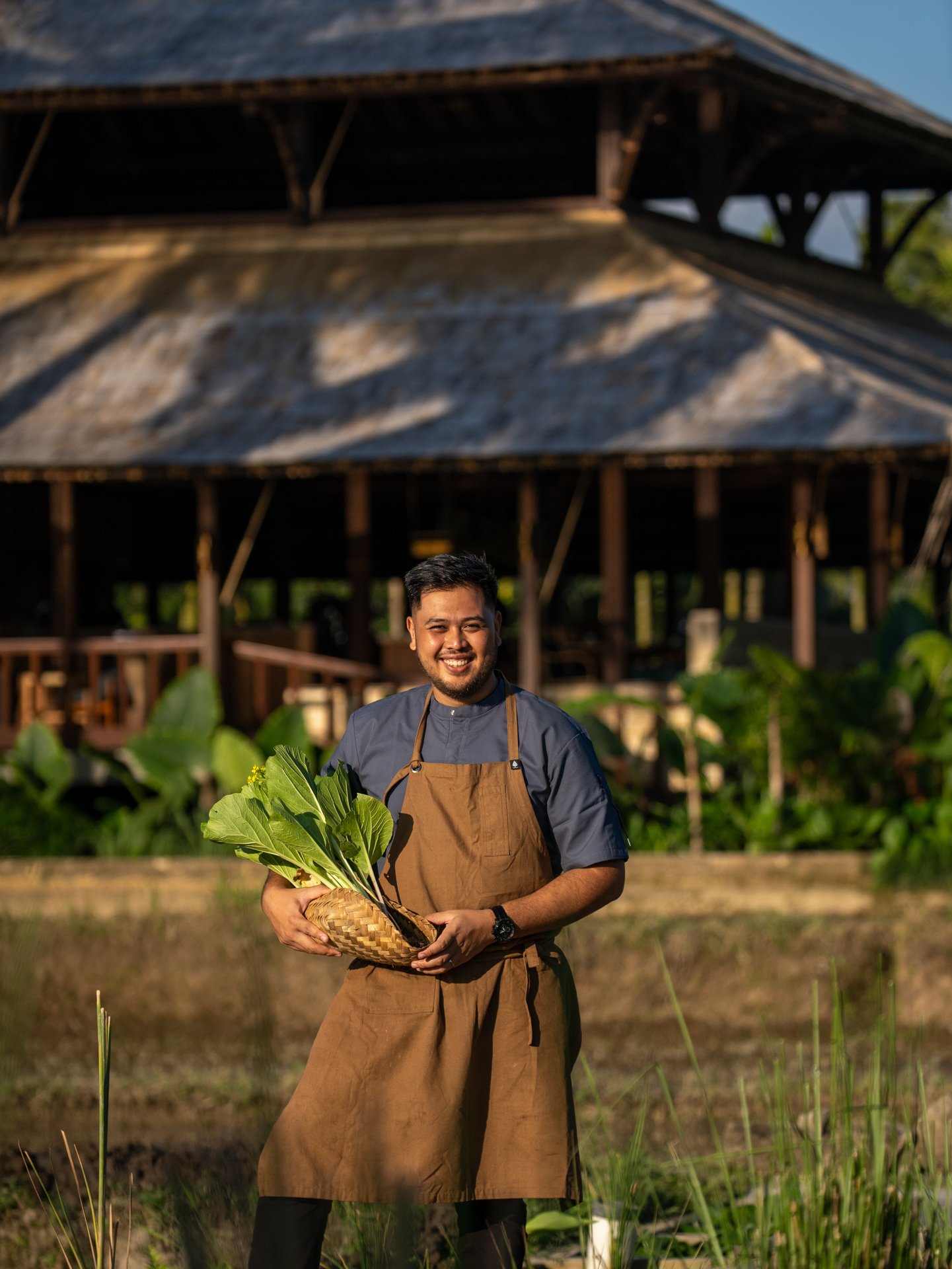
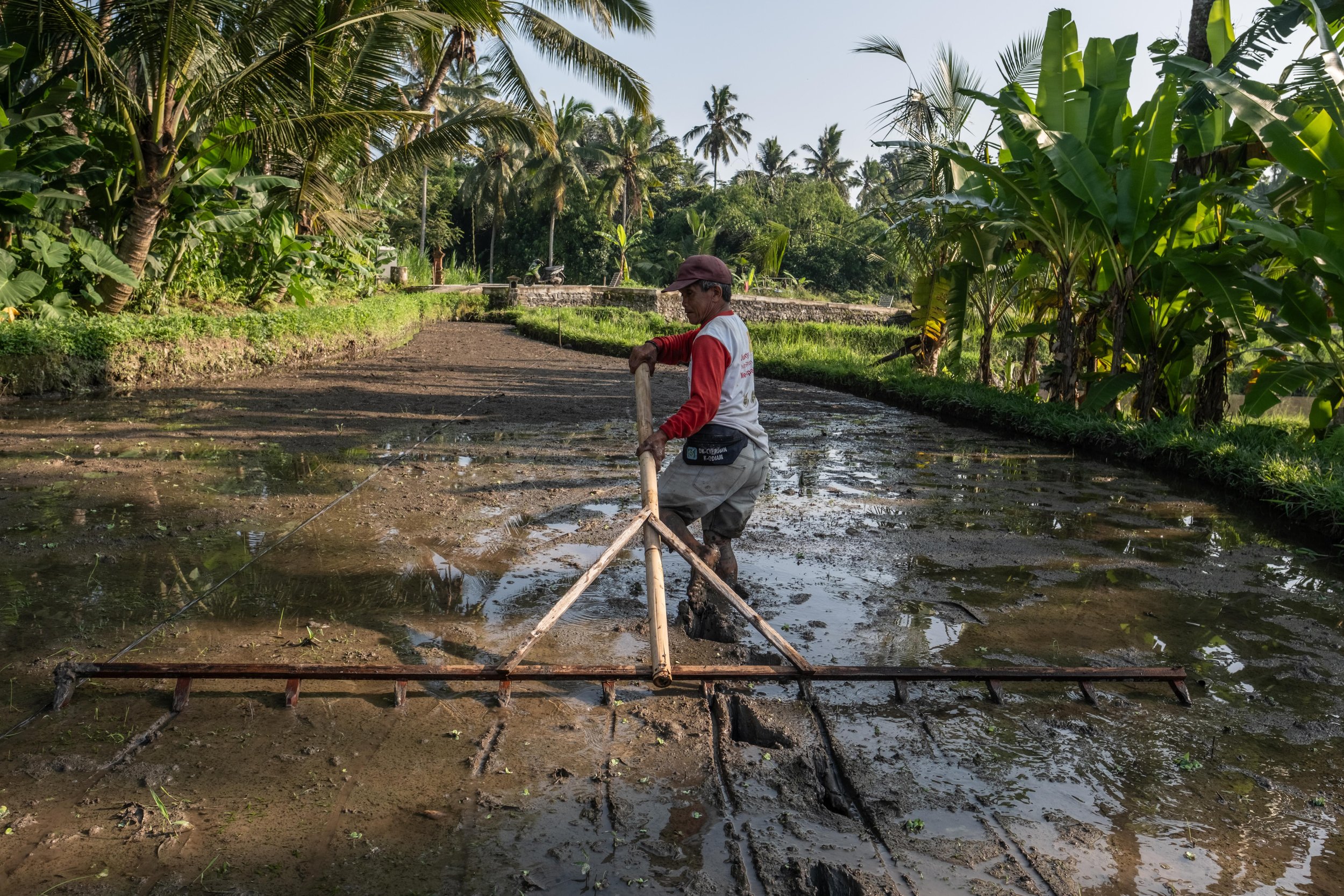
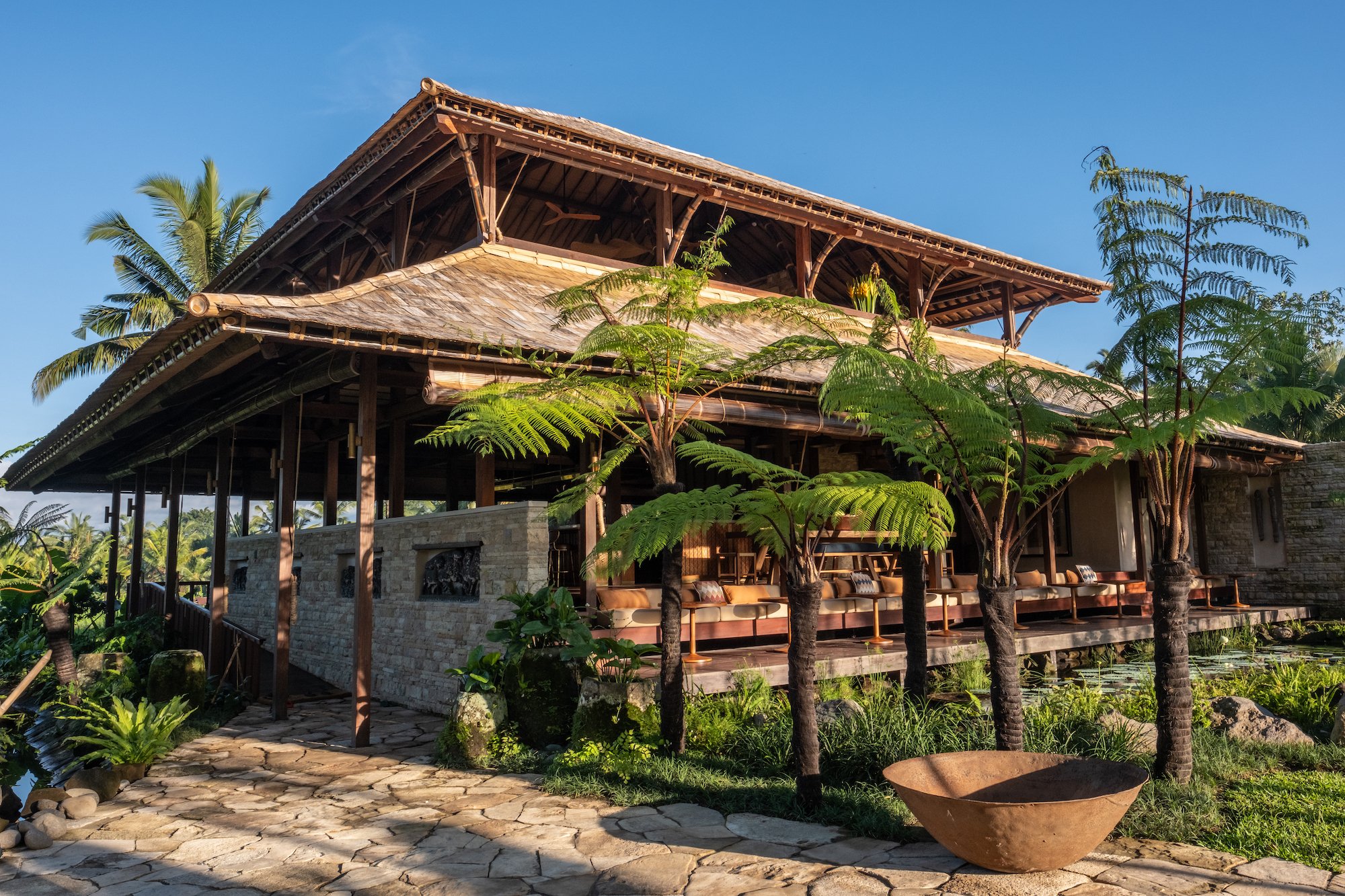
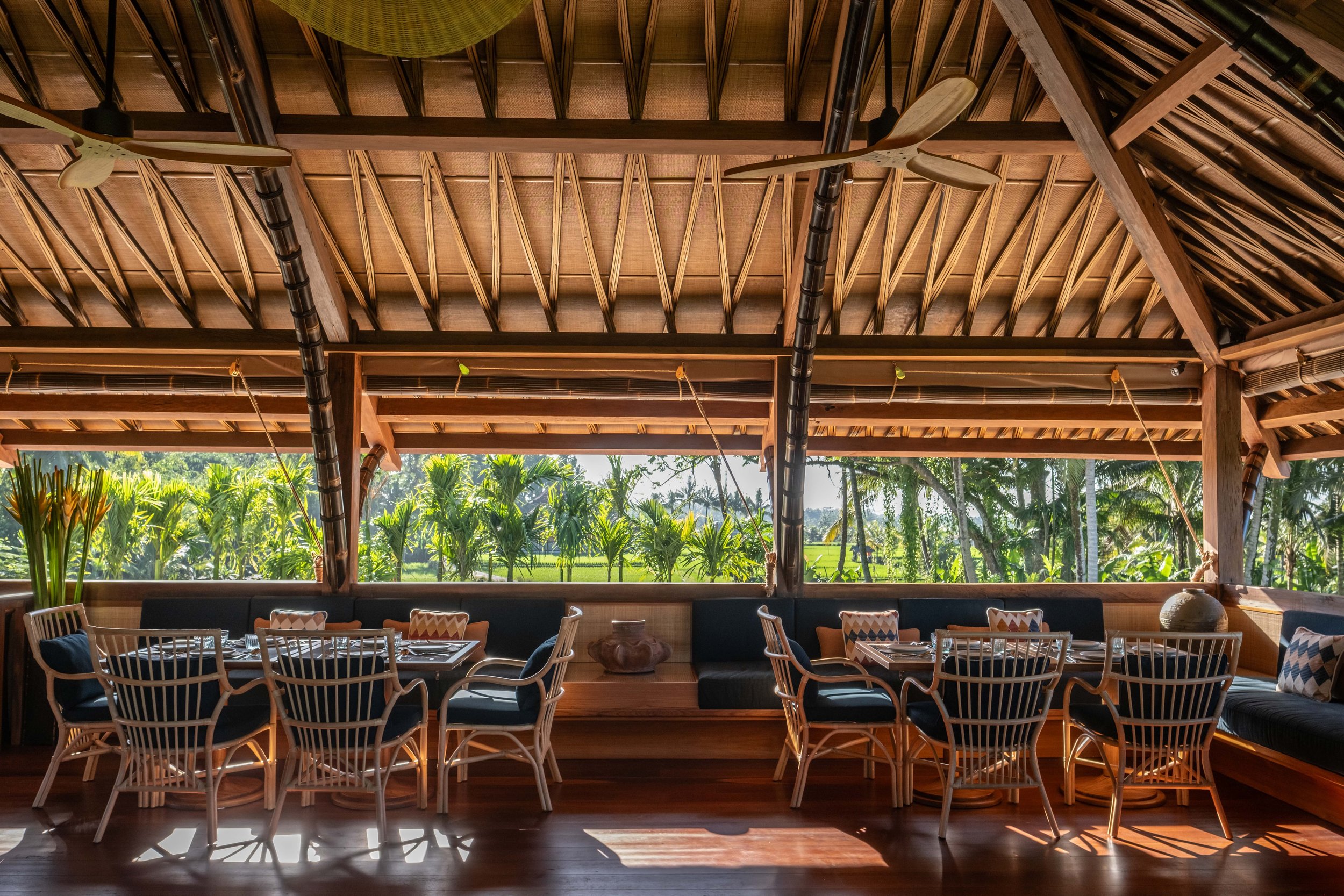
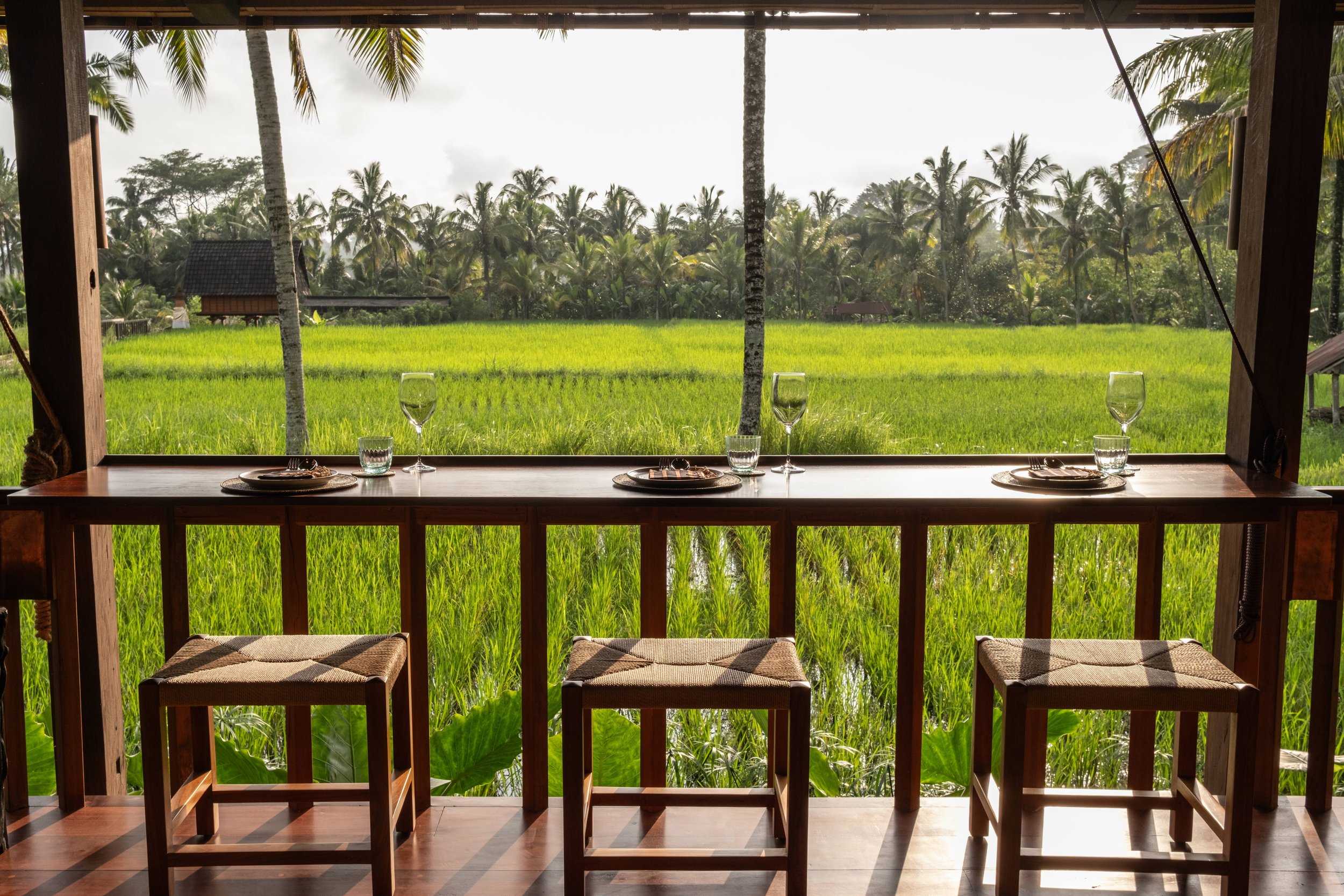
Photos by Begawan Biji.
Culinary Excellence with Community Impact
The restaurant’s profits are pledged to the Begawan Foundation, which provides progressive education to rural children in Bali and operates a learning center for 65 students across six villages in Payangan.
Visitors can enhance their understanding of Begawan Biji through tours of its farm and Bali Starling breeding center for a firsthand look at its impactful initiatives.
Photos by Begawan Biji.
John Hardy The Long Table: No Shortage of Culinary Heritage
At the John Hardy Boutique and Gallery in Seminyak, The Long Table dining experience fuses high-end retail with sustainability and cultural authenticity. The boutique’s transformation into a multi-sensory destination showcases how businesses can integrate gastronomy into their brand ethos.
Photos by John Hardy The Long Table
Celebrating Indonesia’s Culinary Heritage
Under the guidance of Head Chef Tomy Saputra, The Long Table’s sharing menu presents a curated exploration of Indonesia’s lesser-known regional delicacies. Seasonal ingredients and heritage recipes take center stage, with dishes like Jukut Kelor Mesanten (moringa leaves in coconut broth) and heritage rice from Jatiluwih. This approach not only minimizes the environmental footprint but also supports small-scale producers and preserves traditional recipes.
Sustainability as a Standard
The Long Table draws inspiration from John Hardy’s artisan workshops, where meals are communal, advancing connection and collaboration. This ethos extends to the Seminyak gallery, where sustainability is ingrained in both the menu and overall operations. By prioritizing local sourcing, the initiative minimizes food miles while uplifting small-holding food producers. Additionally, zero-waste practices ensure every part of an ingredient is utilized, reinforcing a commitment to environmental responsibility.
TL; DR
The sustainable culinary initiatives of Locavore NXT, Begawan Biji, and John Hardy Long Table offer a roadmap for restaurants and businesses across Southeast Asia and beyond.
By aligning operations with environmental and social values, these establishments demonstrate how sustainability is a strategic advantage and a unique selling point.
Hyperlocal sourcing: Cultivating ingredients on-site or sourcing locally reduces environmental impact while enhancing flavor authenticity.
Tech-enabled transparency: Tools like Locavore NXT’s B.I.O. Library can enhance customer engagement and industry collaboration.
Regenerative practices: Programs like Begawan’s Mansur rice initiative show how businesses can support small-holding farmers, and strengthen ecosystems and local livelihoods.
Experiential dining: Integrating education and hands-on activities deepens guest loyalty and adds value to the dining experience.
Cultural preservation: Celebrating local heritage through food and traditions creates unique and meaningful offerings.
These case studies prove that by intertwining innovation, sustainability, and purpose, businesses can lead the way in creating highly meaningful guest experiences, setting themselves apart from the competition.




























